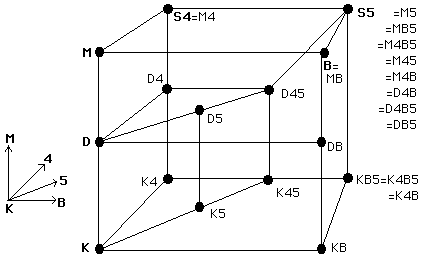In addition to modal properties like possibility and necessity, we also have a notion of likely and un-likely. GMR doesn't give an account of likelyhood (as far as I've seen). This could be a problem:
1) There are as many worlds that realize "unlikely" scenarios as there are worlds that realize "likely" scenarios.
2) It's just as likely we're in an "unlikely world" as a "likely world".
3) (1)&(2)
4) If (3) then (5)
5) "Unlikely" events have just as much chance of occurring as "likely" events.
Now, when I say "unlikely", let your imagination do what it will. Gravity starts acting in reverse tommorow, everything that's blue suddenly turns red and vice versa etc. According to the recombination principle, there are just as many worlds out there in which gravity reverses "tommorow" as there are worlds in which it does not. My claim isn't that there's a bit of a chance we're in one of those worlds, our chances are 1 in 2, and that's just for one skeptical notion!
How is this different from ordinary skeptical concerns? Well, if you come up with an inductive argument (best explanation, un-observed to observed induction etc.) to fend off skeptical doubts, they don't work here. What argument do we have that the actual world is of the special few that maintain order next to the many more possible worlds that have only maintained order up until today? If possible worlds were merely propositions, possible states of affairs(in an abstract sense), or ways the world could have been, favouritism toward the actual world is warranted for any number of reasons. Lewis however sets all worlds on a par.
Responses:
1) probability is an epistemological concern. I agree with this to a certain extent. But even so, holding lewis's theory puts on in an epistemological position of skepticism.
2) There may be more "likely worlds" than "unlikely worlds" if there are many indiscernable "likely worlds". This is sort of ad-hoc, and it screws up Divers's response to the impossibility of singular reference to non-actuals.
3) skepticism. I will not chose skepticism over GMR!
4) You haven't shown a that there's a higher cardinality of "unlikely worlds". This is true. But at best this response gives us 1/2 a chance of being in an "unlikely world". Also, it's entirely plausible that there are a finite number of "likely worlds". If you're a determinist, there's only one.
This is entirely off-topic I know, but does anyone have any ideas about this? Am I way off base somehow?
Monday, June 11, 2007
Subscribe to:
Post Comments (Atom)

1 comment:
I think this consideration shows that probabilistic notions cannot be understood in terms of number of "likely" worlds. Similarly for other notions. Lewis's ontological apparatus is, I believe, consistent with any number of accounts of probability.
Post a Comment